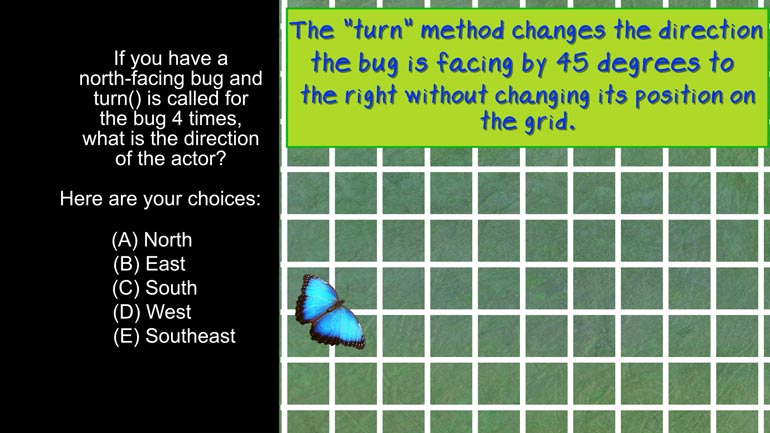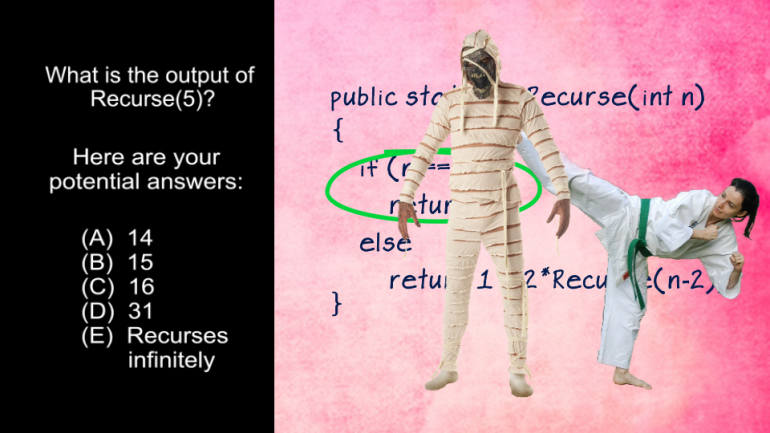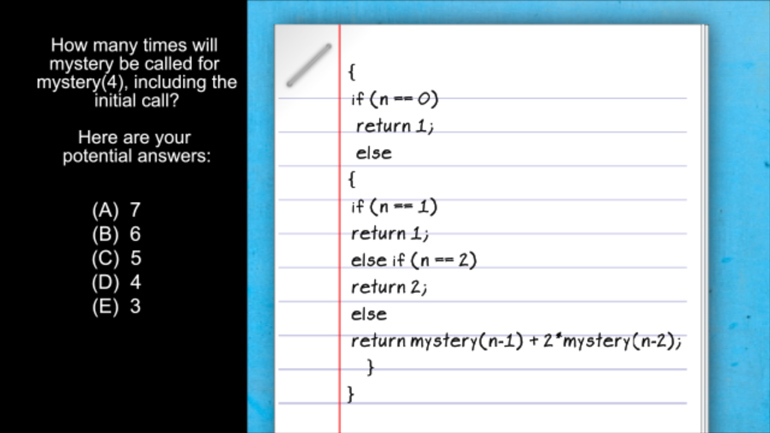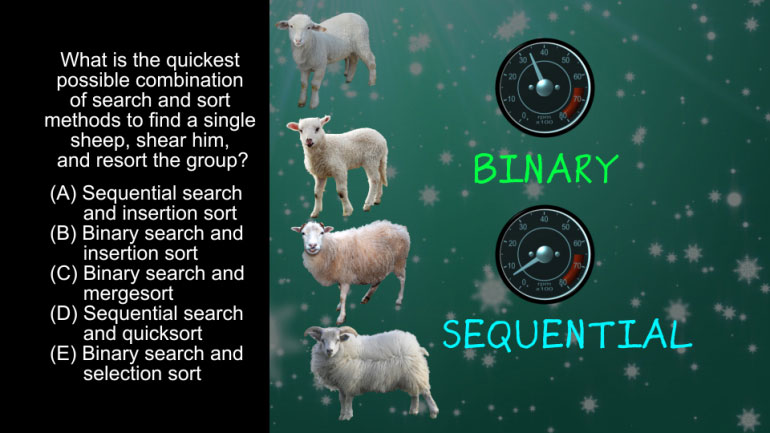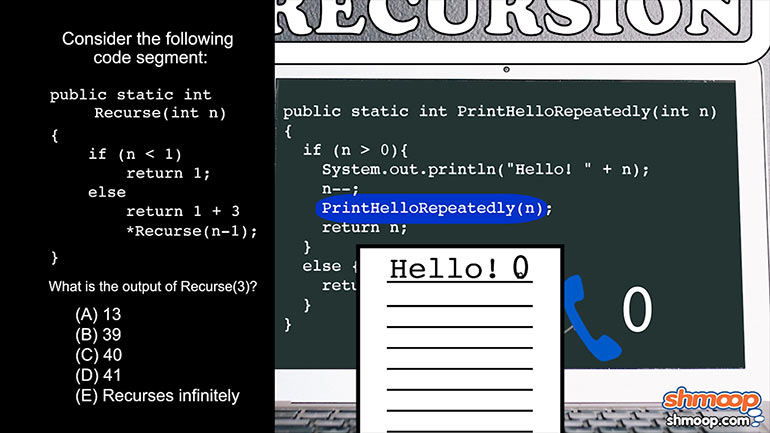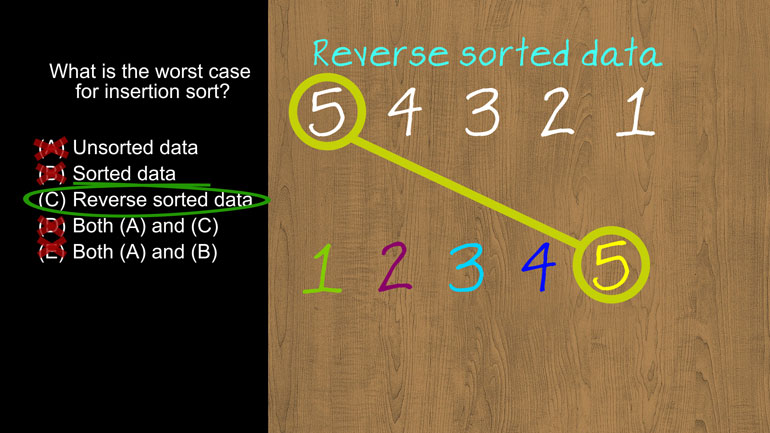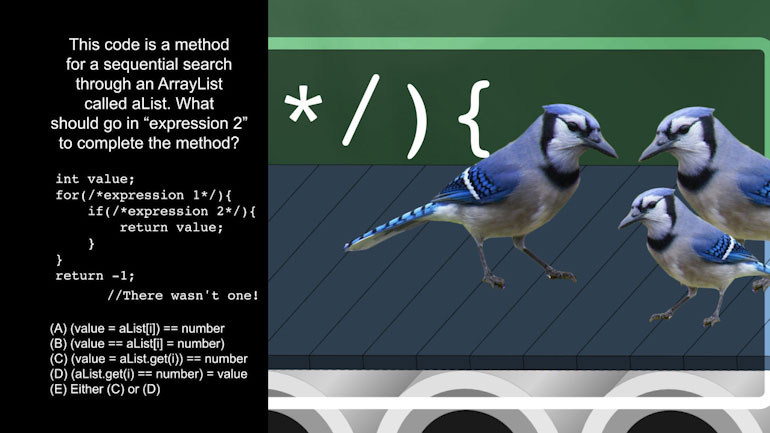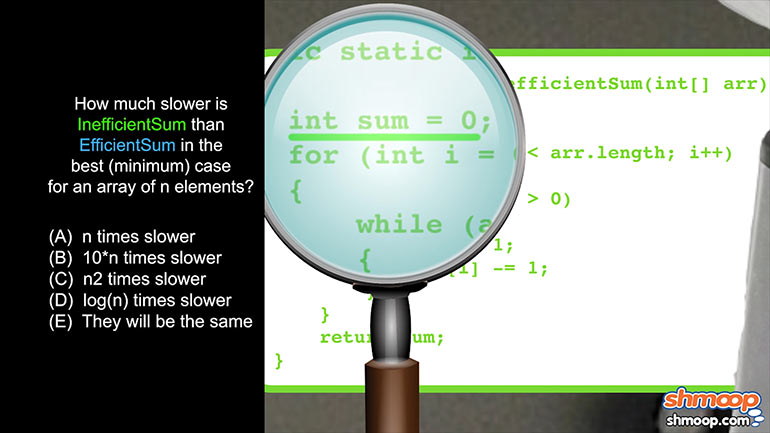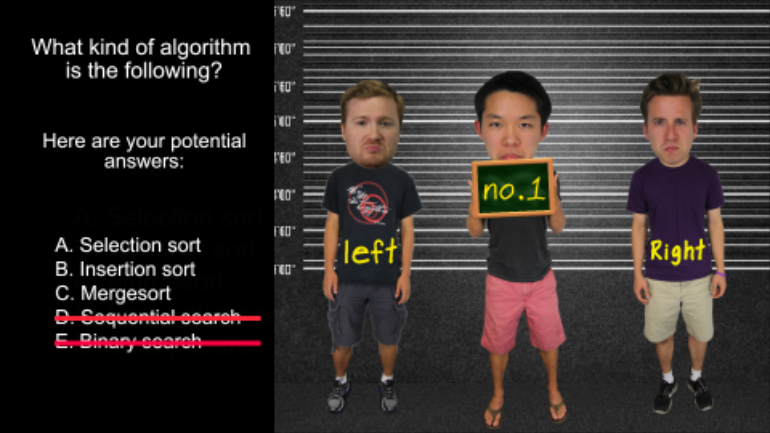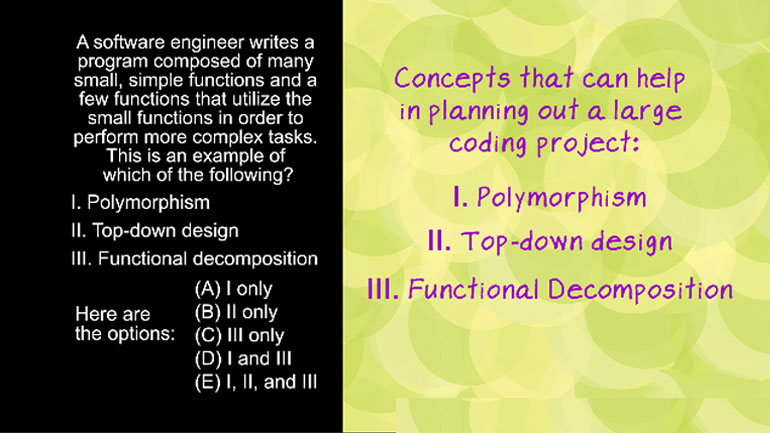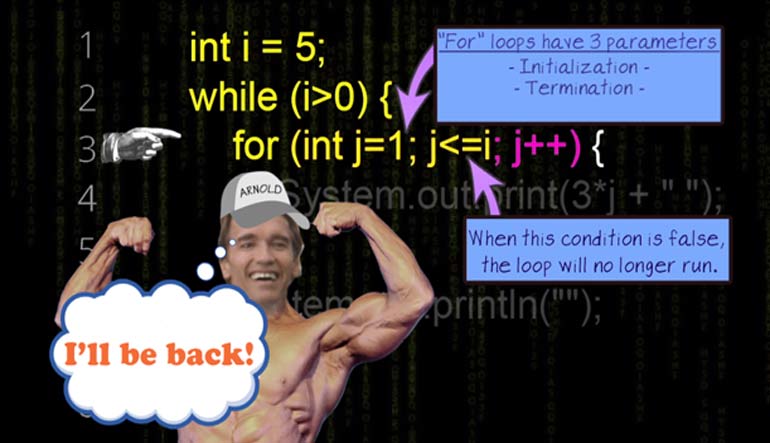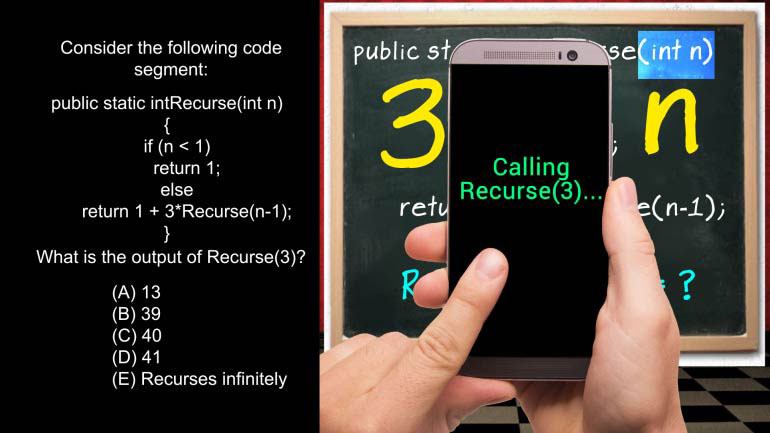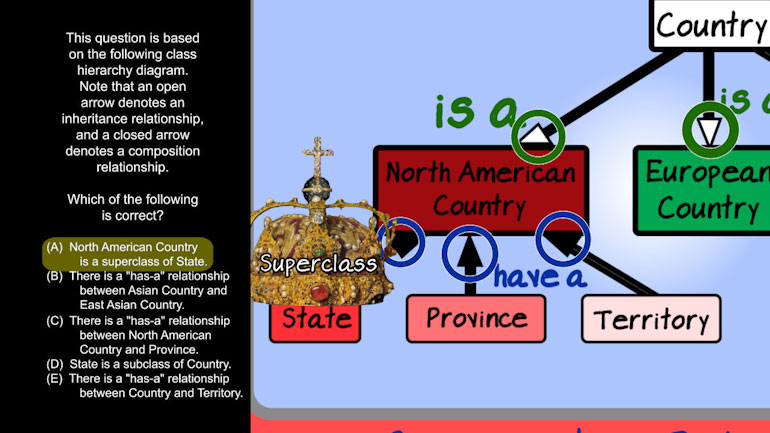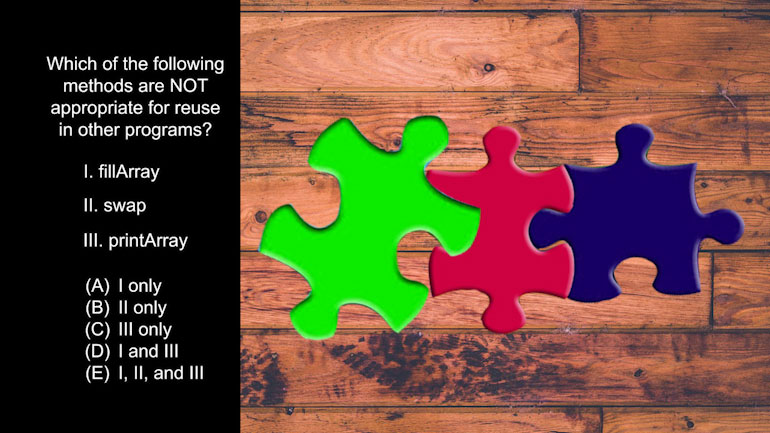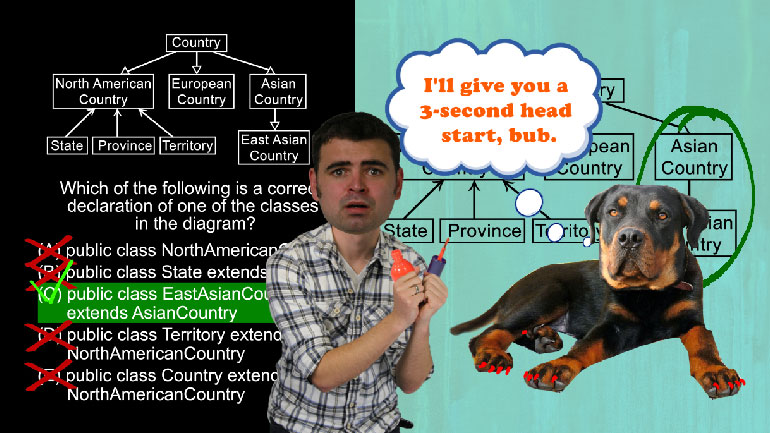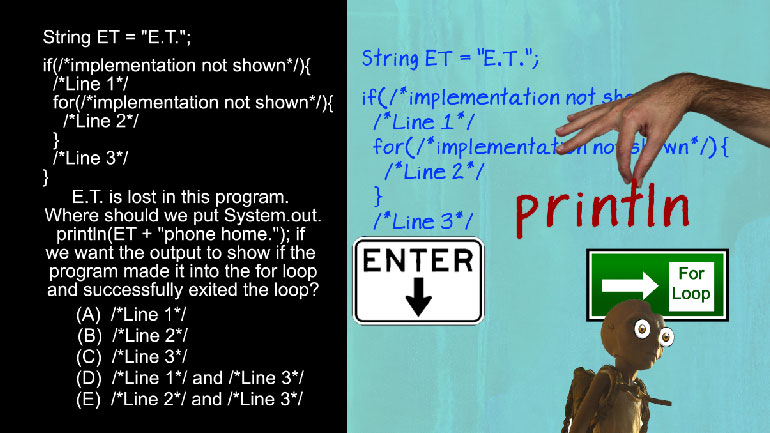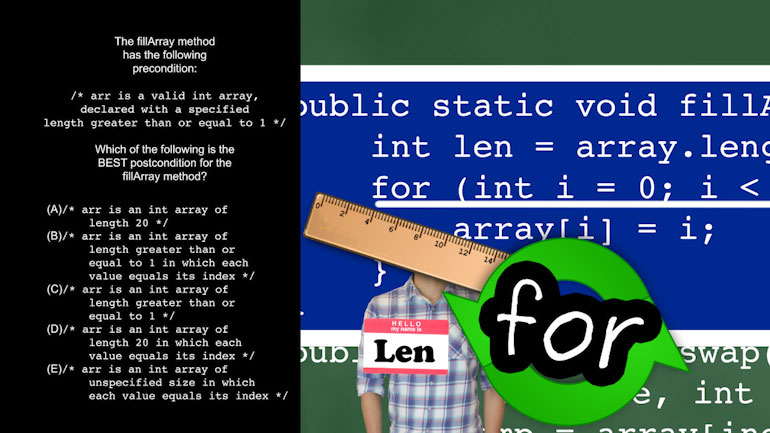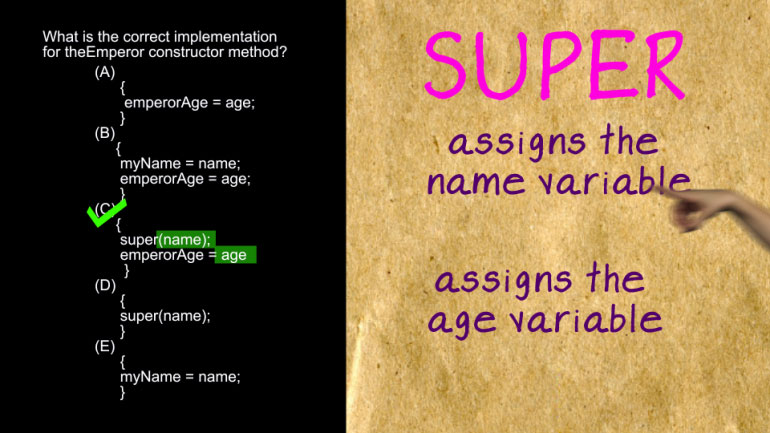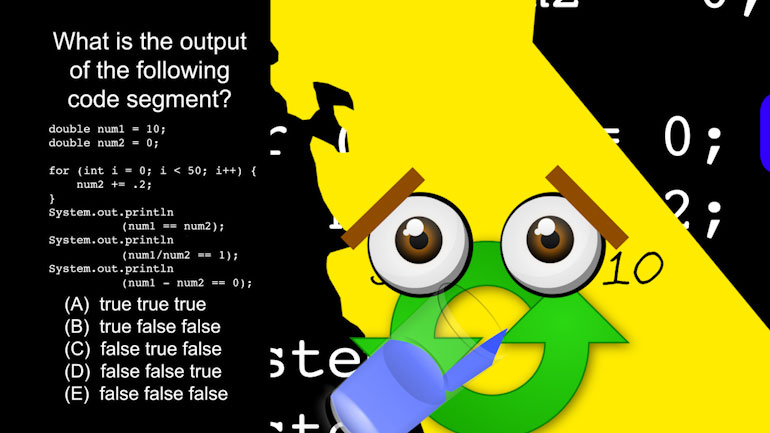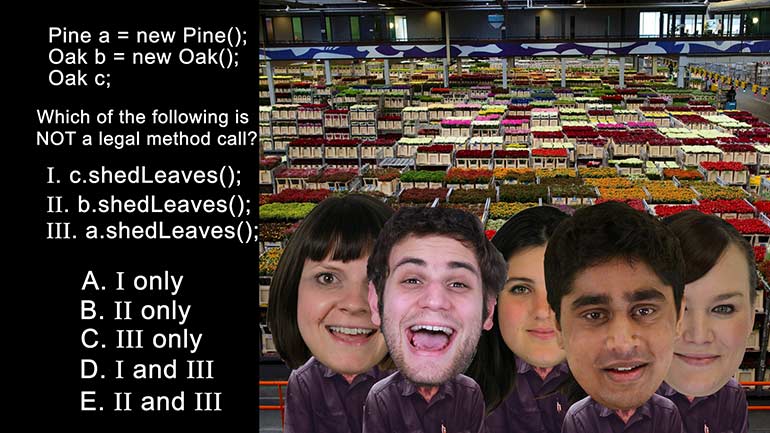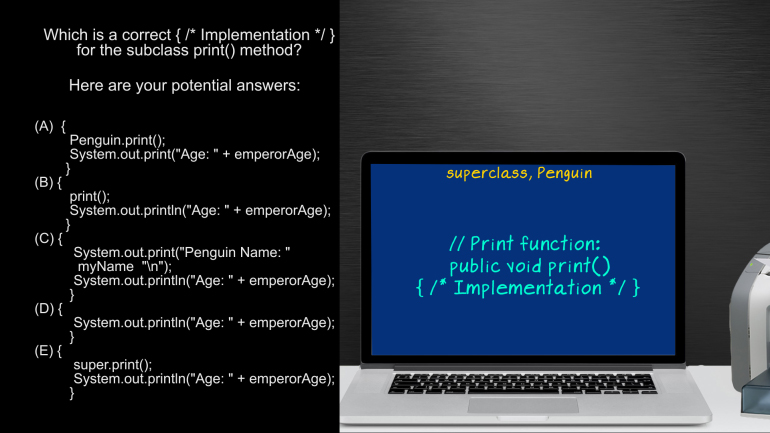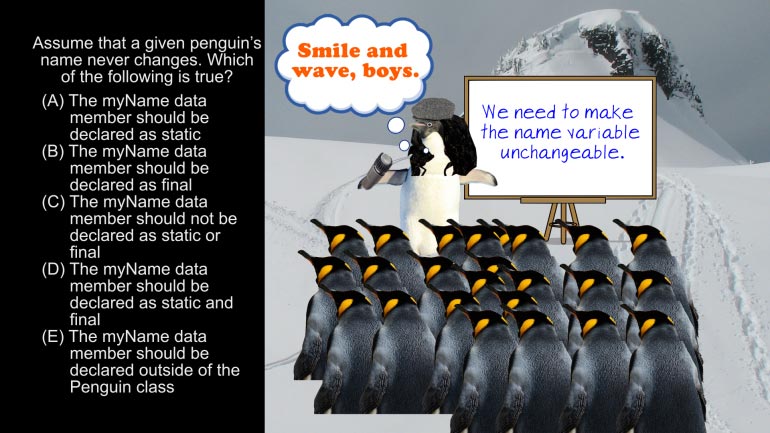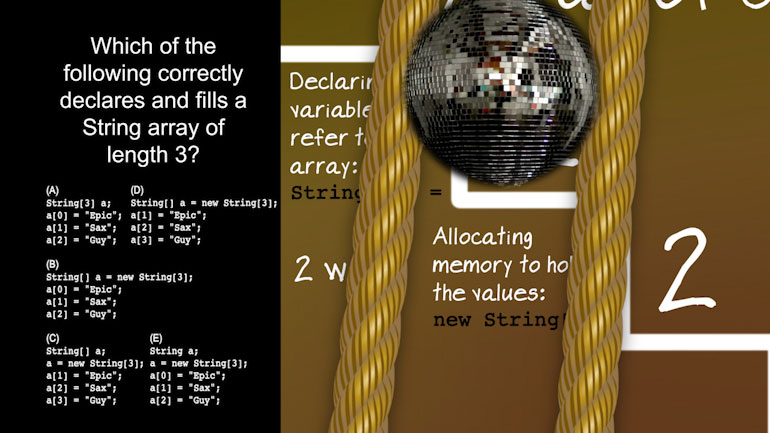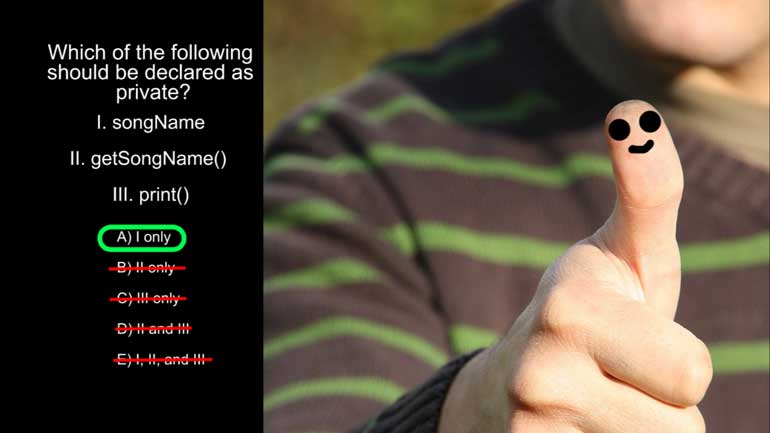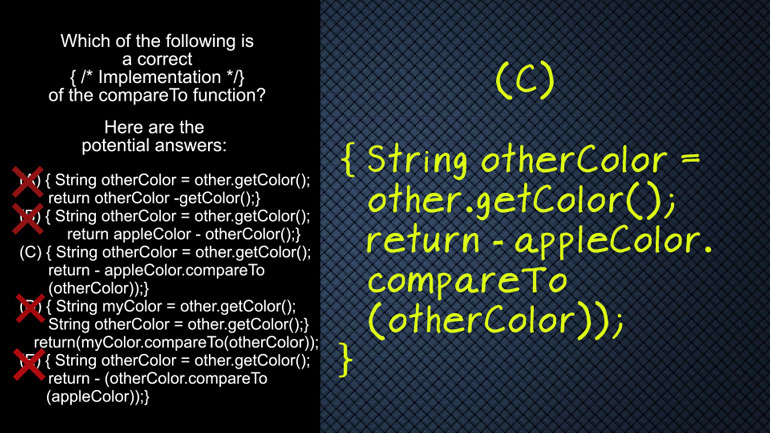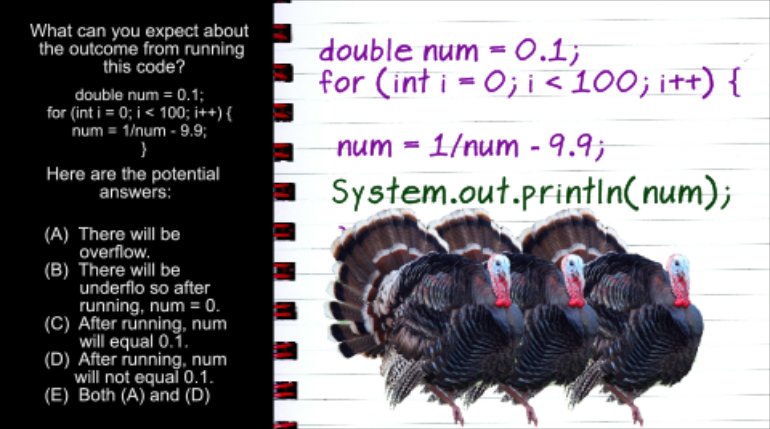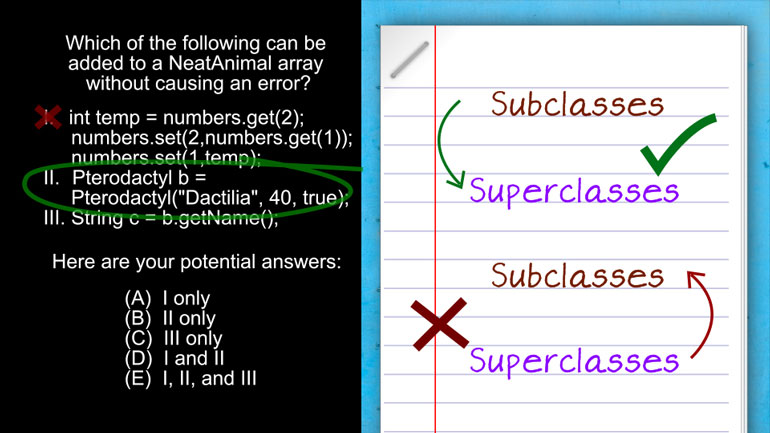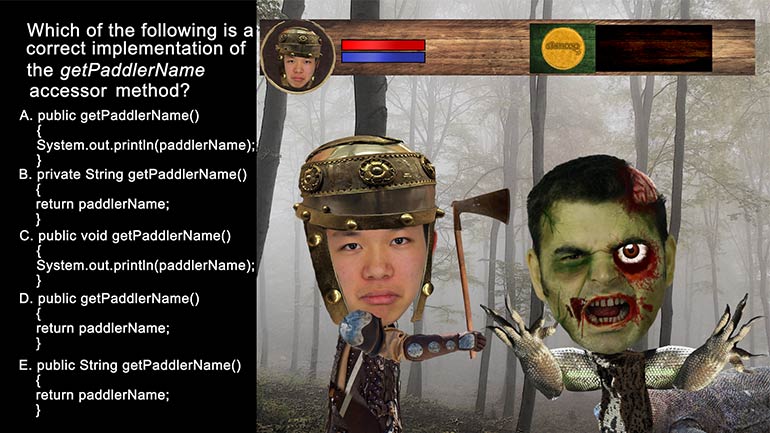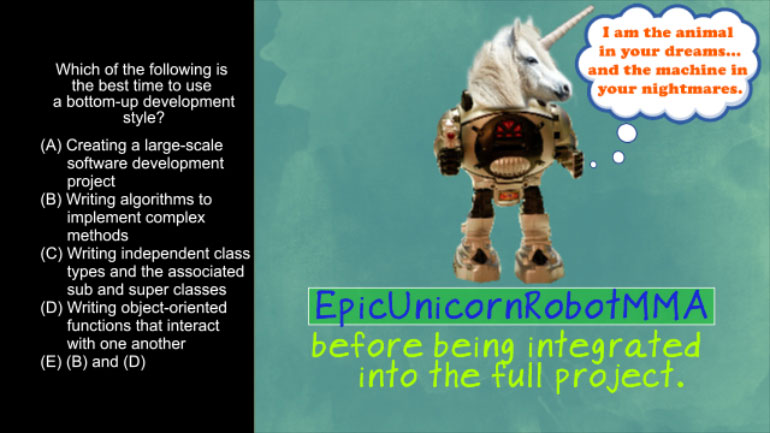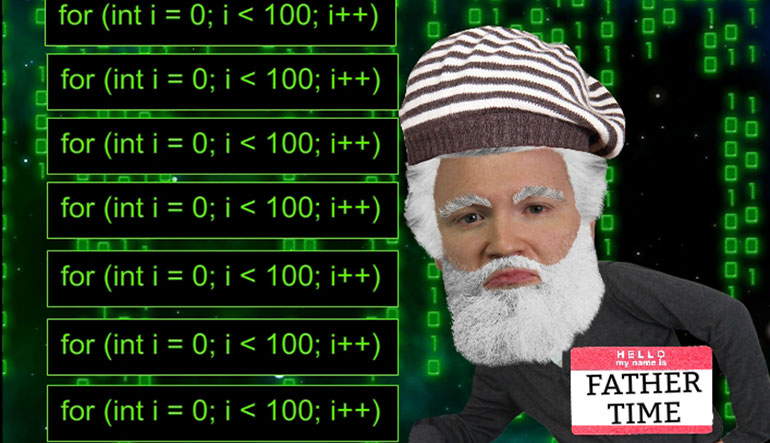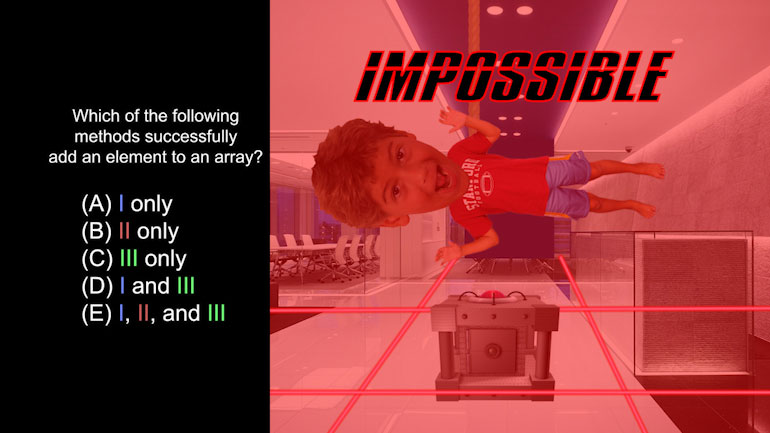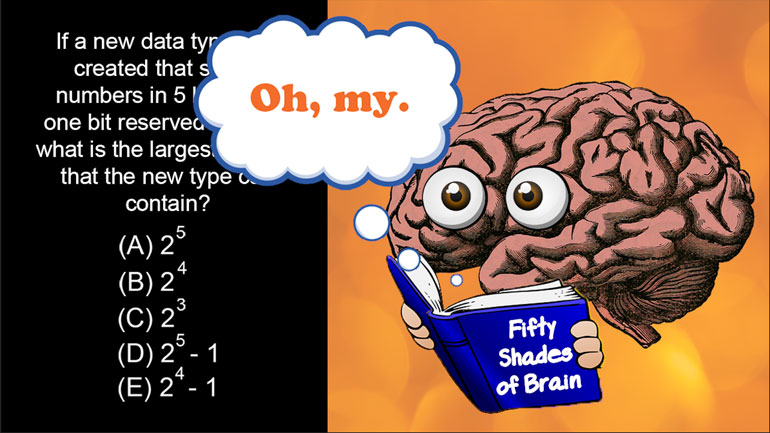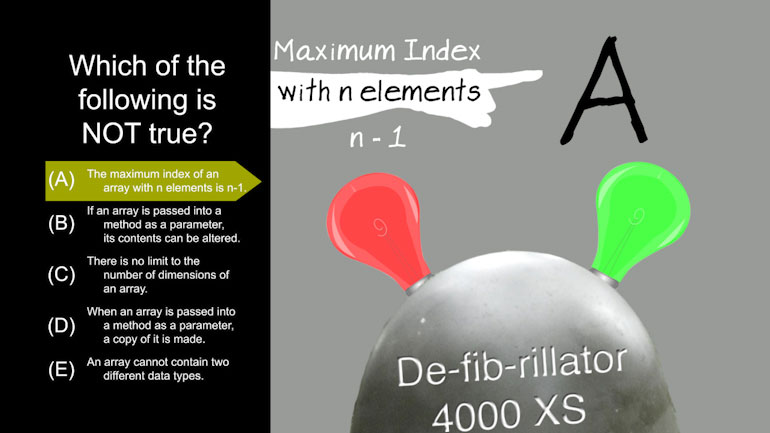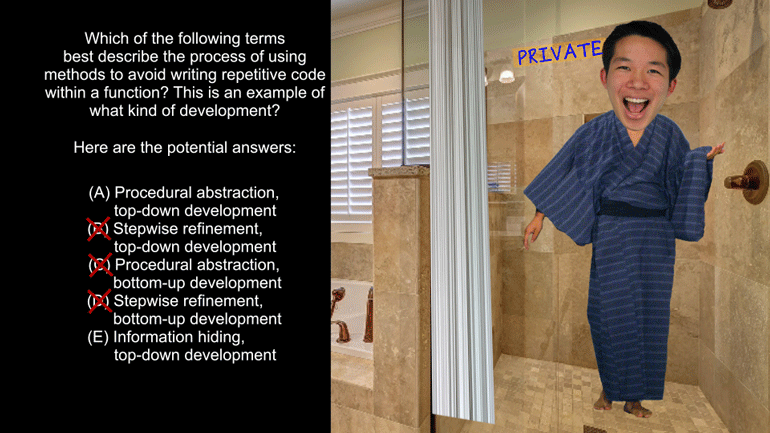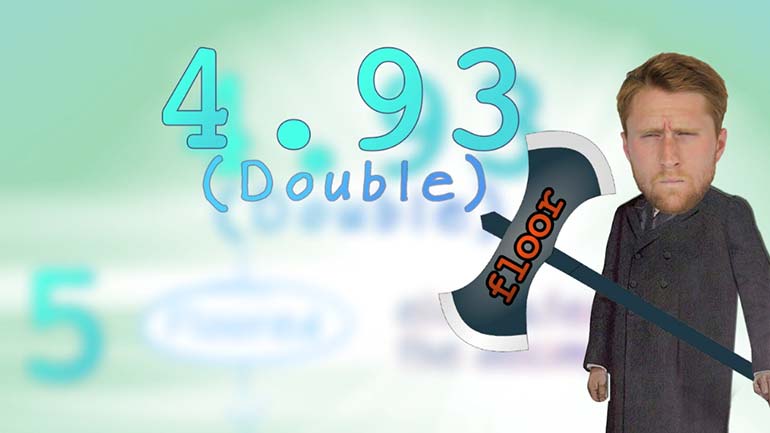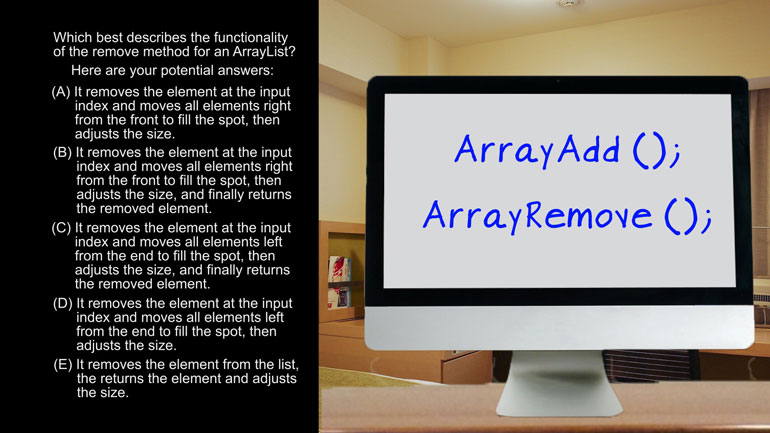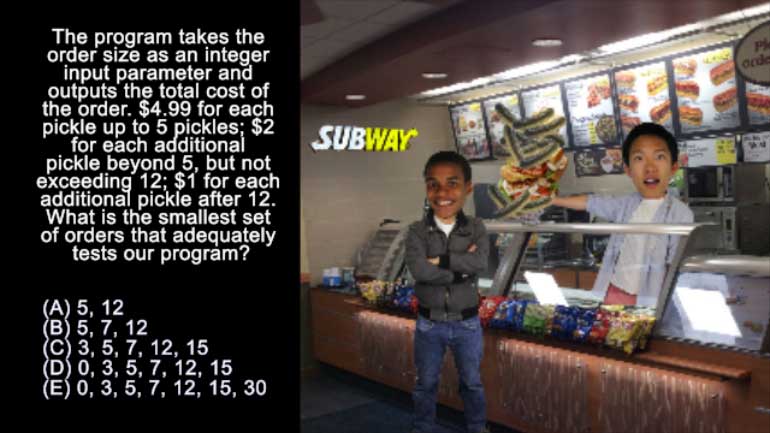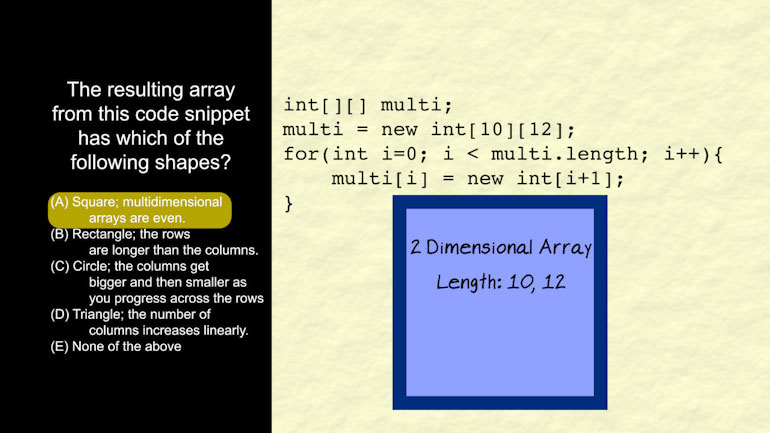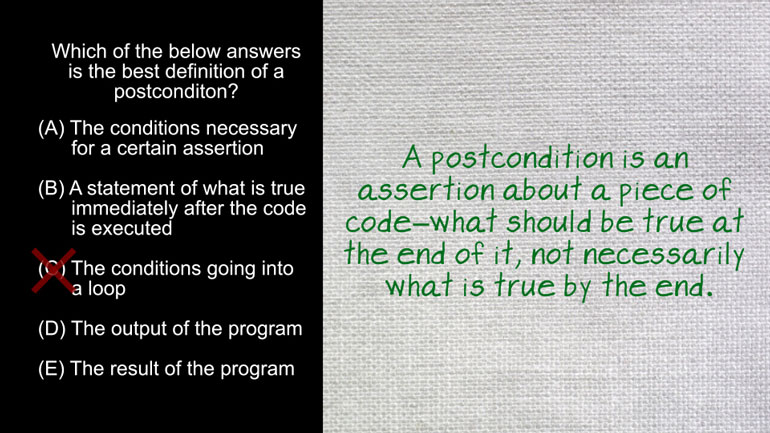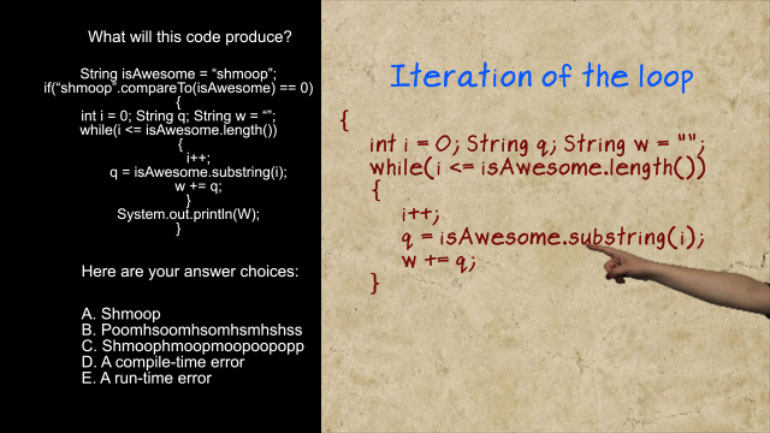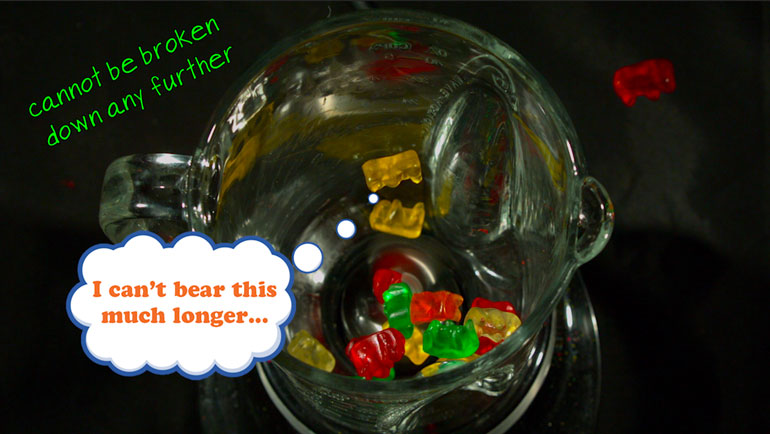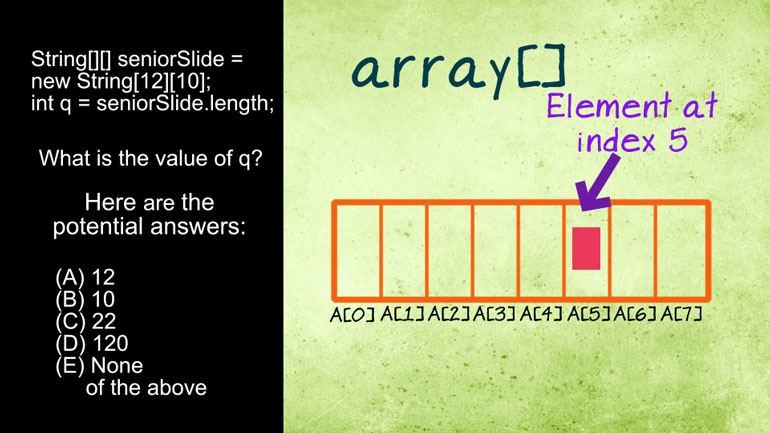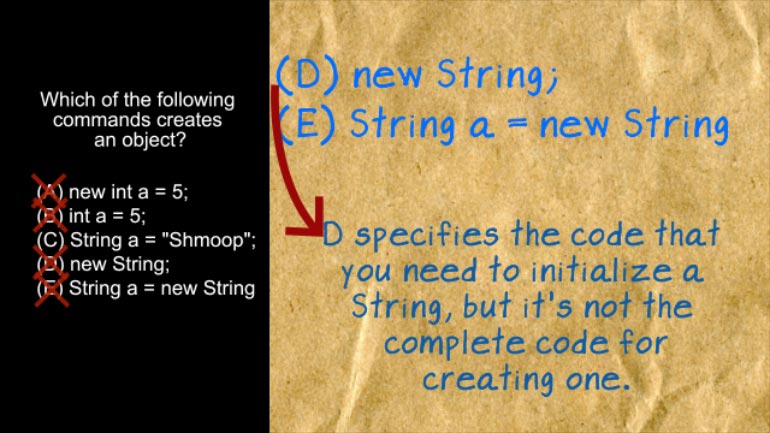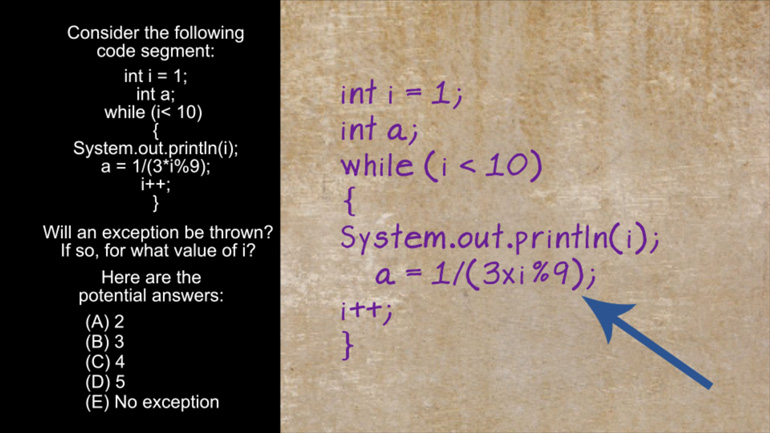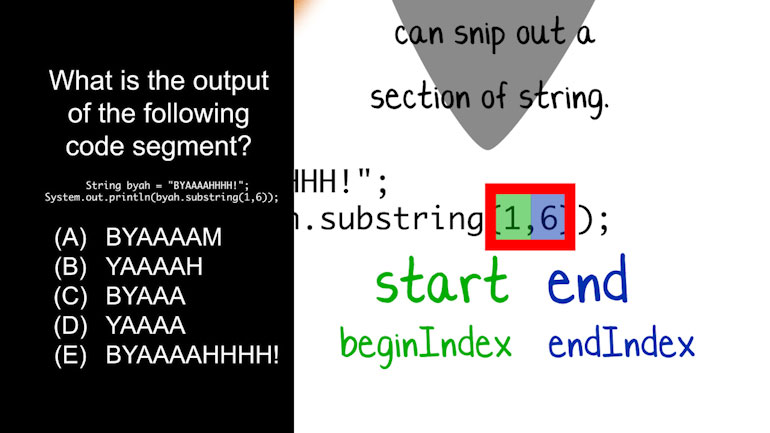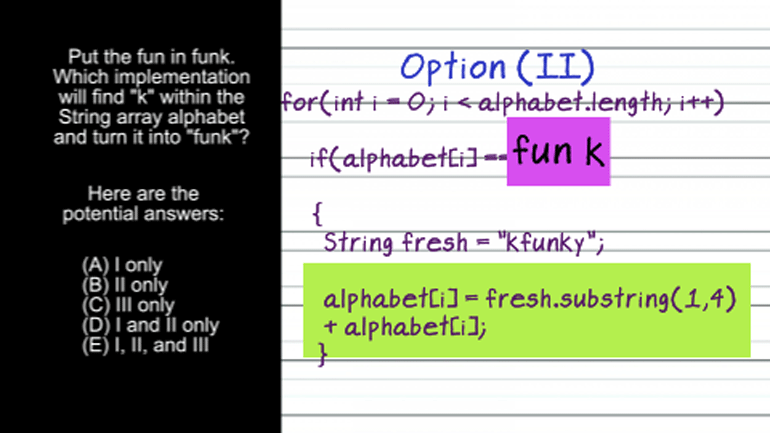ShmoopTube
Where Monty Python meets your 10th grade teacher.
Search Thousands of Shmoop Videos
AP Computer Science Videos 110 videos
AP Computer Science 1.2 GridWorld Case Study and APIs. What is the direction of the actor?
AP Computer Science 1.2 Standard Algorithms. What is the output of Recurse(5)?
AP Computer Science 1.3 Standard Algorithms. How many times will mystery be called for mystery(4), including the initial call?
AP Computer Science 3.2 Review of the Basics 172 Views
Share It!
Description:
AP Computer Science: Review of the Basics Drill 3, Problem 2. How would you change the code to avoid issues?
Transcript
- 00:00
Thank you We sneak and here's your smoke Use your
- 00:05
with your floating point joke of the day Why was
- 00:08
six afraid of seven Because seven eight over we'll go
- 00:13
to nine all right okay how can you change the
- 00:17
code to avoid issues if there are any this coat
Full Transcript
- 00:20
right here and here the potential answers Paul's waver All
- 00:26
right let's go So we're being asked how we change
- 00:28
this code to avoid potential issues If there are any
- 00:31
the code intends to run this four loop one hundred
- 00:34
times and perform a simple mathematical operation on numb each
- 00:38
time Well no um which starts at zero point one
- 00:41
is the divisor of one which gives us ten Then
- 00:44
we subtract nine point nine from that in typical human
- 00:47
style mathematics this would mean the result is your appoint
- 00:50
one Then it loops again This time around Nome is
- 00:53
point one again and again and again until Luke runs
- 00:56
100 times numb Seems like it should always wind up
- 00:59
back at zero point one but that's not how it
- 01:02
works in practice There are issues with his code to
- 01:06
put it mildly that double we declare it The outset
- 01:08
is a floating point variable ding dinging five dollar words
- 01:12
which means it'll be extremely close but never quite exactly
- 01:15
the number we expect In fact in the video for
- 01:18
the previous question we explored what's happening more closely and
- 01:21
here's how numb changes with each iteration ugly So the
- 01:26
floating point uncertainty gets greater and greater Over time until
- 01:29
the whole thing more less breaks down unless the programmers
- 01:32
idea was to get negative ten in the most around
- 01:35
about confusing way possible Well this code does not work
- 01:38
so let's look at possible solutions okay used rule ian
- 01:41
values instead of double Well not quite Julian values are
- 01:44
either true or false and not designed for numbers be
- 01:48
used imagers instead of double Well now that's pretty reasonable
- 01:51
solution Actually of course we've learned in injuries aren't capable
- 01:54
of decimal places that we'd have to use nothing but
- 01:57
whole numbers But if we just did a couple of
- 01:59
tweets to the code here in there and move decimal
- 02:02
places over one space to create whole numbers well hey
- 02:05
there we go and this would actually work to we'd
- 02:08
still get our double that equals zero point one in
- 02:10
the form of numb to that worked Clever well let's
- 02:13
go with b but check the others just in case
- 02:15
option c andy or interesting in that they could be
- 02:17
used to avoid the problem but not fix it It's
- 02:20
like saying the bathroom is broken so just go outside
- 02:23
Okay We've done that before which is to say it
- 02:27
might work in an emergency at two thirty in the
- 02:29
morning when the neighbours won't see But it's not a
- 02:32
real solution Trust us Bad things can happen Long story
- 02:36
All right option eat There aren't any issues with coat
- 02:40
Well that's very funny option He really hilarious So let's
- 02:43
make a mental note not to invite option eating any 00:02:45.185 --> [endTime] more of these things by you
Related Videos
AP Computer Science 1.2 GridWorld Case Study and APIs. What is the direction of the actor?
AP Computer Science 1.4 Standard Algorithms. How many times will mystery be called for mystery(n) for n > 1?
AP Computer Science 2.3 Classes and Objects. Which of the following is correct implementation of the Country class?
AP Computer Science 3.4 Inheritance, Abstraction, and Polymorphism. Which of the following will satisfy the conditional if statement for boo, str,...
AP Computer Science 4.2 Standard Algorithms. What kind of algorithm is the following?
